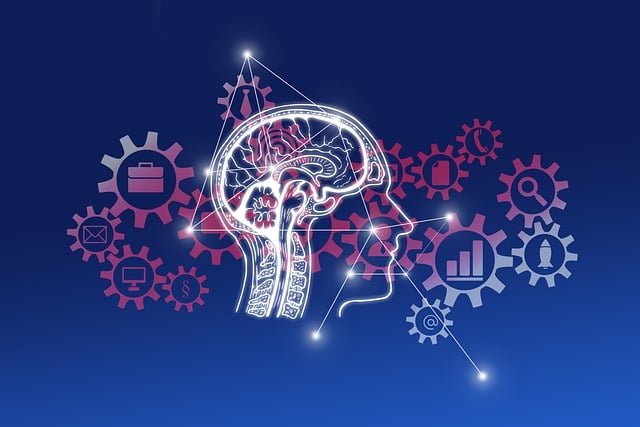Artificial intelligence (AI) is revolutionizing industries by enhancing efficiency, accuracy, and decision-making through technologies like machine learning and natural language processing. Task automation strategies leverage AI bots to optimize workflows, while AI improves customer experiences and streamlines processes in healthcare, finance, and transportation. Despite challenges such as data privacy, specialized skills, and algorithmic biases, advancements in AI technology promise accessible, efficient, and ethical solutions for process improvement.
- Understanding Task-Oriented Bots and Their Potential
- The Role of Artificial Intelligence in Streamlining Processes
- Designing and Implementing Effective Task Automation
- Benefits, Challenges, and Future Prospects of AI-Driven Process Improvement
Understanding Task-Oriented Bots and Their Potential

The Role of Artificial Intelligence in Streamlining Processes

Designing and Implementing Effective Task Automation

Designing and implementing effective task automation requires a strategic approach leveraging artificial intelligence (AI) capabilities. AI-driven bots can significantly streamline processes by understanding complex workflows, learning from data patterns, and making intelligent decisions to optimize tasks. This involves careful analysis of existing processes to identify repetitive or time-consuming activities that are suitable for automation.
Once identified, these tasks should be broken down into manageable steps, allowing developers to create tailored bots capable of executing each step accurately. Continuous monitoring and machine learning algorithms further enhance bot performance over time as they adapt to new data inputs and feedback loops, ensuring a high degree of efficiency and accuracy in task execution.
Benefits, Challenges, and Future Prospects of AI-Driven Process Improvement

The adoption of Artificial Intelligence (AI) in process improvement offers a multitude of benefits, revolutionizing how businesses operate. AI-driven bots can automate mundane tasks, leading to increased efficiency and productivity. They are capable of processing vast amounts of data quickly, identifying patterns, and making informed decisions with minimal human intervention. This reduces errors, streamlines workflows, and enables employees to focus on more complex responsibilities that require creativity and critical thinking. Moreover, AI enhances customer experiences through round-the-clock support, quick response times, and personalized interactions.
Despite these advantages, implementing AI for process improvement is not without challenges. Data privacy and security concerns are paramount, as bots rely on large datasets to learn and make decisions. Ensuring the integrity and confidentiality of sensitive information is crucial. Furthermore, creating and training effective AI models require specialized skills and resources, posing a barrier for smaller organizations. Bias in data or algorithms can lead to unfair outcomes, necessitating careful consideration during development. Nevertheless, the future prospects are promising as advancements in AI technology continue to push boundaries, offering solutions that are more accessible, efficient, and ethical.






